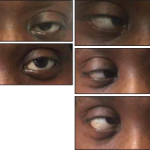Of the 28 patients who died during follow-up, 21 had a paraneoplastic disorder.
“I would hope physicians would not have a nihilistic outlook on this disorder and treat these patients early and aggressively,” Dr. McKeon said. “If the first treatment used does not help, consider using another. Patients with coexisting cancer (paraneoplastic) are less likely to improve.”
He added, “For those wanting to know precise dosing regimens, a lot of the details of the immunotherapy treatments used are documented in a supplementary table.”
Dr. Francesc Graus, who directs Laboratory Clinical and Experimental Neuroimmunology at Institut d’Investigació Biomèdica August Pi i Sunyer in Barcelona, Spain, told Reuters Health by email that “The data is retrospective but you get the feeling that intravenous immunoglobulins, an expensive treatment, probably should not be used as first-line treatment and to use more often corticosteroids.”
“One in five patients made robust, significant, neurological improvement,” Dr. Graus noted. “Patients deserve to be treated and the earlier the better.”
“The median delay to treatment was 6 months for responders and 12 for non-responders,” Dr. Graus said. “These delays are quite surprising and here is an area that we must clearly improve (time=brain).”
He added, “more research is needed in this field, so to send these patients to centers with special interest in autoimmune CNS disorders is the best guarantee to advance in the treatment of these disorders.”
Dr. Harald Prüss from the department of experimental neurology at Charité Universitätsmedizin Berlin, Germany, said “current guidelines should encourage frequent antibody diagnostics as the resulting therapy will make a huge difference to these patients.”
“The findings argue that one should try very hard to treat the condition with sufficiently aggressive immunotherapy,” Dr. Prüss said. “It also implies that it often takes too long before immunotherapy has started. In the routine management of autoimmune ataxias, antibody detection should be done as early as possible and should include a higher number of potential antibodies than routinely done in most laboratories.”
His main message for physicians: “Never give up with these patients! If one immunotherapy fails, try another! Traditionally (e.g., in patients with onconeuronal antibodies such as anti-Yo) neurologists assumed a very bad prognosis, but this has changed with the newer class of ataxias with surface antibodies.”

